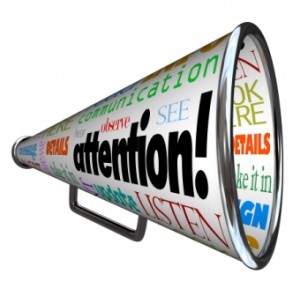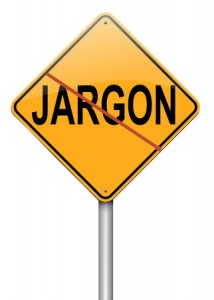 A great way to kick off Guest Post week is featuring a post from Anne Wayman.
A great way to kick off Guest Post week is featuring a post from Anne Wayman.
This week I am in San Diego, my old hometown, for business and pleasure.
- Meeting with clients
- Participating in my 9th 3-Day Walk for the Cure
- And having lunch with writer friend, Anne Wayman
Ironically, I first met Anne in person only after I moved from San Diego.
I’ve followed Anne since starting my business in 2008 and am blessed to know her as a treasured friend.
Please welcome Anne and enjoy her guest post.
I sure do love the theme.
=======================
Reading Out Loud – The Key To Simple and Clear Writing
By Anne Wayman
It’s so tempting when doing business writing and facing a blank screen to think you’ve got to be fancy and sound scholarly.
It’s simply not true.
Good corporate writing is not that different than the writing you’ll find in your favorite magazine. While most of the writers you’ll read have had lots of practice, you can begin to write like a pro by keeping your written communications simple.
You’ve heard it before, and it’s true.
- Keeping your writing simple leads to clarity.
- Keeping it simple and clear is also a wonderful way to respect your reader.
- You’re making it easy for them to actually get your message.
Avoid long words when short ones will do
Usually short words communicate well; long ones tend to add a layer of complexity that gains neither you nor your reader anything.
For example, compare these two sentences:
- “You don’t want to obfuscate the issue’”
- “You don’t want to confuse the issue.”
With the first you run the risk of embarrassing at least some of your readers because they don’t know what obfuscate means.
The second expresses your meaning exactly, and simply.
While sometimes we have to use long words or words that others may not know, those situations are rare and best avoided whenever possible.
In some ways the best writing is unnoticed.
Your reader gets what you want to say without struggle and without even thinking about the way you wrote it.
Shorter sentences often work best
Although long sentences may be grammatically correct, shorter sentences tend to communicate ideas more clearly.
- One approach to this is make sure each sentence has only one idea.
- Another is to examine any sentence that spills into two or more lines.
- Often they can be split into two or even simpler sentences to good effect.
Avoid jargon
Jargon is best avoided even when you’re writing for folks in the know.
In publishing, for instance, the word, ‘manuscript, is often abbreviated as ‘ms.’
The truth is there rarely is any reason to use that abbreviation except, maybe, to show off that you know it.
Nothing will be lost and clarity may well be gained by spelling out jargon in full.
Of course there are exceptions to this rule.
Again in publishing, SASE means Self Addressed Stamped Envelope, and is certainly easier to type.
If there are terms in your industry that are well understood and are truly easier to use then go ahead. Just be sure you’ve thought it through.
Read your draft out loud
Reading the draft of what you’re writing out loud is probably the best way to discover if your writing communicates what and the way you want.
Your ear will hear what your eye can’t see.
This is especially true when you’ve just written something – you know what it should say and your eye often misses glaring errors you’d notice if you actually heard the piece.
When you’re reading your work aloud it’s not unusual to find misused words.
- You’ll hear places where you’re writing has gotten awkward and complex.
- You’ll also be able to spot things you missed that you want to include.
Reading a draft out loud, while embarrassing at first, is magic.
It’s such magic that it’s worth inflicting the sound of your voice on your office mate or taking your work out doors (getting out doors is good for you anyway when the weather’s good) and reading out loud there.
Try it, at least twice, before you discard the idea. I’m betting you’ll ending up loving the result.
How do you keep your writing clear?
NOTE: I will be in San Diego from November 7th through November 20th. Part of that time will be spent walking 60 miles for the 3-Day Walk for the Cure.
I will respond to Comments as soon as I can. Walk on! And thank you.
============================
 Anne Wayman ghostwrites books and coaches writers. She blogs regularly at AboutFreelanceWriting.com; her professional site is AnneWayman.com.
Anne Wayman ghostwrites books and coaches writers. She blogs regularly at AboutFreelanceWriting.com; her professional site is AnneWayman.com.


Great advice, Anne. Just because you know a lot of big words, it doesn’t mean you have to use them. I love the richness of language, but you’ve got to know when it’s right to use certain terms. Absolutely love this post! 🙂
Hi Sharon: Great point. While personally I’d look up a word I didn’t know; many would not. They’d just leave or move on. Thanks for sharing your thoughts, Sharon.
Amen, Anne! Clarity is important. No one wants to read bloated, self-important writing – probably because it’s so difficult to follow what’s being said.
Right on, Paula. We love simple & clear here. 🙂
You don’t realize until you actually try this just how well it works. Good stuff, Anne. 🙂
So all should give it a try, huh, Lori? You know it has my vote. 🙂